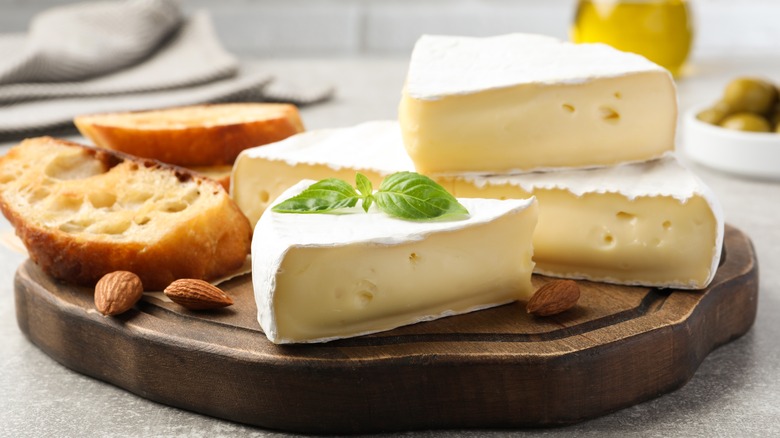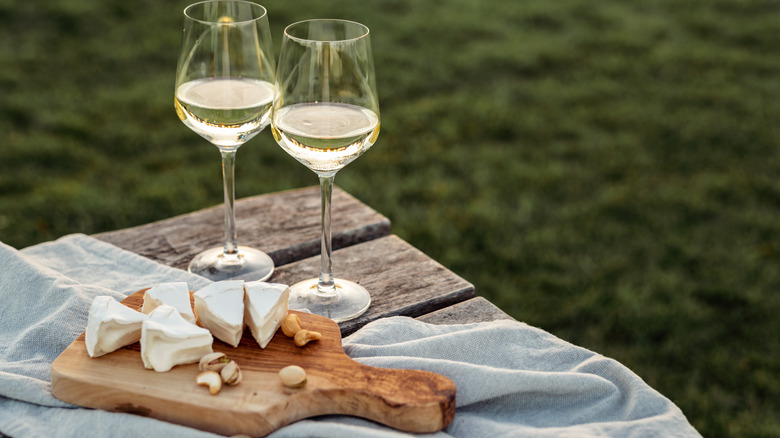The Reason You Should Pair A Sharper Wine With Brie
If you love cheese and who doesn't, really? Then you probably already know that there are hundreds of types of cheese made all over the world, to the tune of more than 1,800 (via Wisconsin Cheese). From cheddar to Gouda to Parmesan, you could spend years of your life eating all different kinds of cheeses, and you'd still have many left to explore. That sounds like a task we're ready and willing to sign up for.
But even if you're something of a cheese expert, it can be a learning curve figuring out how to pair wine with cheese. Sure, we've all been to a cocktail party where we've been offered a standard glass of red or white to pair with the many options present on the cheese plate, but if you're serious about truly matching the qualities of a specific cheese to those of a certain wine, it can be helpful to read up on some tips instead of just grabbing a random bottle. And if you love brie — the soft, bloomy-rinded cheese style that originated in northern France (via Castello Cheese) — then you're going to want to match it with a sharper, more acidic pour.
An acidic wine cuts through the rich fattiness of brie
If you like dense, creamy, mild cheeses, then you're surely a fan of brie, the cow's milk cheese that melts superbly and so often makes its way onto griddled sandwiches, pizzas, and crostinis. According to JJ Buckley Fine Wines, brie is extremely rich and buttery, and pairs well with acidic white wines, whose sharpness helps cut through the cheese's fatty richness. A covers-all-the-bases pairing suggested by the site, which will complement both younger, fresher brie and nuttier, more aged brie is a Chardonnay, whose acidity and body will stand up to the creamy cheese.
If you've ever sipped a beer alongside a burger and fries or washed down a slice of pizza with a Coke, then you know that bubbles go a long way toward cutting through richness and greasiness. The same theory applies to brie, which pairs very well with sparkling wines such as Champagne, JJ Buckley notes, or dry Prosecco, as recommended by Serious Eats. Whichever way you go, make sure to chill your wine — but serve the brie at room temperature, in order to best savor its full flavor and gooey texture (via Président Cheese).

